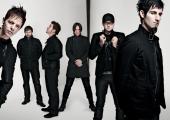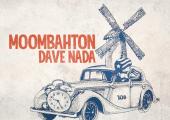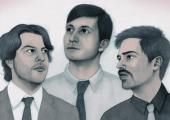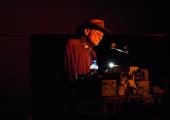Pendulum, Wembley Arena



Rave music, in its many ever-mutating forms, is now more than a generation into its existence. Many, possibly most, of the crowd pushing into Heaven, under Charing Cross station, weren't even born when acid house fully hit the UK in 1988, but none of them are here for some retro experience. It's hard, as a superannuated lover of electronic beats, not to feel cultural vertigo at the fact that what once felt like the most impossibly inhuman of sounds has now become so ubiquitous and so established as to be a kind of folk music. But there it is, as established as the blues or punk rock, and as woven into the fabric of our lives, yet still mutating and still throwing up fresh variants such as the dubstep which Magnetic Man play.

Some days I feel like I've woken up on the other side of some wormhole in the spacetime continuum, and the world is a subtly but definitely different place to yesterday. So it was last week when I got a slightly drunken email from a music producer in Rotterdam, with some remixes of his work, saying, “There was this dude called DJ Orion and this dude was working in his lab on his freak creation. Mixing moombahton with footwork and guarachero at 140 bpm. He named it: boombahchero.”

Parallels have occasionally been drawn between techno and modern classical music, most especially dissonant movements such as minimalism, serialism and the broader avant garde. The purest techno has a stark, almost barren simplicity and those involved with it, notably Detroit techno original Jeff Mills, are keen to build bridges with the orchestral community, taking techno into concert halls and hoping to add a certain intellectual kudos. Such ventures are a mixed blessing - often losing the sheer energetic fun of the music along the way - but a new German outfit called Brandt Brauer Frick bridge the gap in a fascinating manner, throwing in a hint of jazz along the way.

If there's one festival in Britain where people are ready for the rain, it's the Green Man. After all, nobody goes to the Brecon Beacons to sunbathe, right? The weekend, which began the spate of boutique and specialist festivals that dominate the summer season now, remains one of the most spirited in the UK, and its crowd seems to be one of the hardiest even when, as this year, the deluge is near-continuous.



“I'm moving to Berlin.” In artistic circles and especially those that include electronic musicians, over the past few years such a threat has become so commonplace as to be cliché. It's not without reason, though. For one, despite gentrification, Berlin has endless space (and empty industrial artistic “spaces”) and its cost of living is about a two-hundredth that of London. And just as importantly, it is more soaked in electronic music than anywhere else on the planet.
It's over-egging it a bit to equate Krautrock with the entire rebirth of Germany. It's also slightly jarring to entitle the film Krautrock when its narrator then blames the World War Two-obsessed British music press for inventing such a disparaging term (cue supplementary evidence of Spike Milligan and John Cleese pretending to be Nazis.)